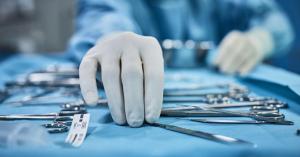
A new study shows a DNA shift in smokers that could allow for better identification, treatment, and prevention of smoking related diseases.
CNN tells us the study that was released Tuesday references the effect tobacco smoke has to sit atop and change gene function for up to 30 years.
Videos by PopCulture.com
“Our study has found compelling evidence that smoking has a long-lasting impact on our molecular machinery, an impact that can last more than 30 years,” said co-author of the study, Dr. Roby Joehanes of the Institute for Aging Research. “The encouraging news is that once you stop smoking, the majority of DNA methylation signals return to never-smoker levels after five years, which means your body is trying to heal itself of the harmful impacts of tobacco smoking.”
The team of researchers believe the findings of the study will be helpful in recounting a person’s smoking history in detail and thus providing better information for studies that explore risk factors for things like heart diseases and lung cancers.
Leader of the study,Dr. Stephanie London, deputy chief of the epidemiology branch of the National Institute of Environmental Health Sciences, said, “We identified many genes affected by smoking. (If) we understand what smoking does, we can potentially intervene.” She adds that new therapies could be developed to specifically target the impacted genes.
However, the risks of smoking, while largely known, are often ignored. While medical technology has come a long way, Jeremy Pearson, asscioate medical director at the British Heart Foundation says,
“This large and well-performed study … (shows) that while many of these changes are reversible, some are very long-lasting and may affect risk of future disease even though the person has stopped smoking.”
“It further emphasizes the point that while giving up smoking is a very important way to reduce risk of serious disease, it is even better to not start at all.“









